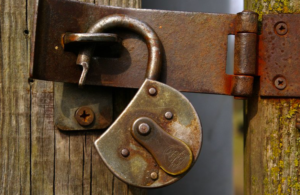
In this article, we explain what a guarantor mortgage is, how it works, things you should consider as the borrower or as the guarantor as well as some alternative routes to owning a home. We also explain how a first-time buyer mortgage expert* could boost your chances of homebuying success by considering a wider range of mortgage solutions.
What is a guarantor mortgage?
A guarantor mortgage is one that relies on a close family member or friend acting as a guarantor on the mortgage loan, which means they take responsibility for the debt in the event that the homebuyer doesn't keep up with repayments. They are a way of helping people who might otherwise not be able to get a mortgage get a foot on the property ladder. Guarantor mortgages are particularly popular as a way for parents to help their children buy a home, without having to give them a deposit out of their savings. Importantly, the guarantor must be in a good financial situation and be willing to step in if the homebuyer becomes unable to keep up with mortgage payments.
Specialist mortgage advice for first-time buyers
Our partner Tembo is a specialist mortgage broker that offers tailor-made mortgage solutions for people with smaller deposits including Guarantor, LTV and first-time buyer schemes.
How does a guarantor mortgage work?
A guarantor mortgage works by asking the guarantor to agree to back the homebuyer's mortgage commitment legally. The mortgage loan for a guarantor mortgage is usually offered on the basis that the guarantor has the means to support the homebuyer if needed and this can be demonstrated in a few different ways. The guarantor may qualify to support someone buying a property if they have:
- a good amount of equity in their own home or own it outright
- sufficient savings that could be used to replace missed mortgage payments
- sufficient disposable income to cover the homebuyer's mortgage payments
Guarantors usually have to meet a minimum age requirement which may vary across lenders but generally are expected to be over the age of 21. An upper age limit will depend on the term of the mortgage as lenders will judge this on life expectancy. It is also expected that the guarantor should have a good credit score.
It is important to note that the guarantor doesn't own the property or have any legal rights over it. However, they have to sign a legally binding contract that states they will step up to pay any missed payments and, if it comes to it, make up any shortfall if the property is repossessed and sold by the lender. As such, they stand to lose their own property or savings if the homebuyer doesn't keep up with repayments.
The three main types of guarantor mortgages are:
- Guarantor mortgages secured against property: The lender places a charge against the guarantor's home, which usually means they will have to own the property outright or have a good amount of equity built up in it. If the debt isn't repaid, the lender can, in theory, end up repossessing the guarantor's home
- Guarantor mortgages secured against savings: For some guarantor mortgages an amount equivalent to 10% of the property value is put into an account linked to the mortgage. The money is locked away for either a set period of time (say, 5 years) or until a certain proportion of the mortgage has been paid off (perhaps 25-30%). If the payments are all made on time, the guarantor gets the money back in full, often with interest paid on it. If, however, payments are missed, the lender may extend the period the money is tied up for or, with persistently missed payments, keep some or all of the money.
- Guarantor mortgages secured against income: Guarantor mortgages where the homebuyer requires support to prove that they can afford the mortgage payments may be offered if your guarantor can evidence enough residual income to support your mortgage payments.
Who is a guarantor mortgage suitable for?
A guarantor mortgage is a specialist mortgage product and, as such, won't be suitable for everyone. They are normally designed to support first-time buyers with:
- No deposit: With 100% loan-to-value mortgages incredibly rare in the UK, guarantor mortgages are one of the few ways for homebuyers to secure a mortgage without a deposit.
- Poor or little credit history: If you are struggling to get a mortgage because you have a severely impaired credit history, perhaps with bankruptcy, IVAs or CCJs, you may still be accepted for a guarantor mortgage. Similarly, if you don't have a substantial credit history because you haven't borrowed money in the past or had a credit card, a guarantor mortgage may be a good option for you. However, in both of these circumstances, it is worth speaking to a good mortgage broker* who can access deals from specialist lenders designed to meet the needs of those with a less-than-perfect credit history.
If you think you may be well-suited to a guarantor mortgage, the first step is to find someone who is willing and able to act as a guarantor. Keep in mind there is risk involved in this arrangement and, if things go wrong, you could potentially damage your relationship with that person, as well as exposing them to financial hardship.
Who can act as a mortgage guarantor?
The criteria around who can act as a mortgage guarantor differs from lender to lender, so it is important to check the terms and conditions carefully before completing your mortgage application. However, there are certain key factors the majority of lenders will be looking for from a potential guarantor. These include:
- Being a homeowner: To act as a guarantor, you often need to either own a property outright or have a significant amount of equity in your home
- Having a good income: Whether from being in employment or from other sources of income, a guarantor needs to demonstrate they could afford to make the repayments on the mortgage alongside their existing financial commitments, including the mortgage and bills on their own property
- Having a good credit history: The mortgage lender will check the guarantor's credit record with one or more of the main credit reference agencies to check their creditworthiness based on their past financial behaviour
Some lenders require the guarantor to be a close relative, for example a parent, step-parent or grandparent. Others are willing to accept any family member or friend. The prospective guarantor is usually required to get independent legal advice before entering into the arrangement so they have a full understanding of the risks involved.
What happens if I miss a payment on a guarantor mortgage?
If you know you are unlikely to be able to make your monthly mortgage repayments, you need to speak to your lender and your guarantor as soon as possible. It is much better to give prior warning of a missed payment and attempt to come up with a workable solution than waiting and dealing with the consequences after the payment is due.
For a one-off missed payment, a lender could:
- Allow you more time to make your repayment
- Charge you a penalty fee for missing the payment
- Ask your guarantor to make the repayment
For persistent late or missed payments, you can expect the lender to:
- Keep the guarantor's money locked away for an extended period until the payments are up to date
- Take some or all of the money owed from your guarantor
- Repossess the mortgaged property
- Sell the repossessed property and demand any shortfall be made up by the homebuyer and the guarantor. In the worst-case scenario, the guarantor's property could also be repossessed
Can I stop being a guarantor for a mortgage?
If your situation changes and you no longer want to act as guarantor, it will be down to your lender if you are able to extract yourself from the arrangement. This is likely to be governed by:
- How far along you are into the arrangement: It is unlikely you will be able to get out of the contract within the first couple of years of the arrangement. However, once the homebuyer has built up a good track record of making payments on time, the lender may look more favourably at restructuring the mortgage product.
- The financial position of the homebuyer: If the person who bought the house is now in a stronger financial position, perhaps with a better-paid job or a greater level of financial security, the lender is more likely to consider allowing you to remove yourself as guarantor.
- The property's value: If the property has significantly gone up in value since the mortgage was taken out, the homeowner may be able to remortgage onto a lower LTV deal without the need for a guarantor. It is worth checking if an early repayment charge is payable in this situation.
What are the advantages of a guarantor mortgage?
- A guarantor mortgage can allow people who wouldn't otherwise be able to get a mortgage to buy their own home
- It allows family members or friends to help someone get a mortgage without having to provide a gifted deposit
- Helps you buy a property sooner, potentially saving you money in rental payments
What are the disadvantages of a guarantor mortgage?
- There is a disproportionate amount of risk placed on the guarantor. In the worst-case scenario, they stand to lose their own home or a significant amount of savings. As such, the homebuyer and guarantor need to have a high level of trust between them and good communication
- There is a risk of irreparable damage to the relationship between the homebuyer and guarantor if the arrangement breaks down
- Guarantor mortgages are typically more expensive than standard mortgages, which means monthly repayments will be higher
- There is less choice of guarantor mortgage products
Which lenders offer a guarantor mortgage?
Guarantor mortgages are not offered by all lenders but some lenders including Lloyds Bank, Halifax, Furness Building Society and Barclays may consider a guarantor mortgage application or similar type of mortgage arrangement. A gifted deposit is sometimes acceptable even if a guarantor mortgage is not available. Lenders do change the criteria for these types of mortgage arrangements, so it is best to speak with a mortgage broker that can access a number of lenders' mortgage products - this will ensure that you not only save time, but also avoid being declined by a lender based on your circumstances.
How to arrange a guarantor mortgage
To get a clear understanding of which option may work for you and, indeed, if a guarantor mortgage is suitable for your needs, we would recommend speaking to a reputable mortgage broker, such as Tembo*. Tembo charges a fee for its services in finding bespoke mortgage solutions which are payable once you complete your mortgage - it does not cost anything to have an initial conversation. Alternatively, Habito* is a fee-free online mortgage broker where the mortgage advisers will be able to help you build a mortgage solution that works for you.
What are the alternatives to guarantor mortgages?
Gifted deposit
Rather than acting as a guarantor, some people prefer simply giving money to the first-time buyer as a gift. This is obviously not a possibility for everyone, but it does allow for a more straightforward transaction between both parties and removes the potential for financial risk for the guarantor.
Saving for a deposit
With a greater number of 95% LTV mortgage products now available, first-time buyers don't need to save quite as much for a deposit. There is great guidance on how to get a deposit in our article "How much deposit do first-time buyers really need" and more information on 95% LTV mortgages in the article "Which are the best 95% LTV mortgages - and should I get one?"
100% LTV, no deposit mortgage
There are a few no-deposit mortgage options available to people who can meet the specific criteria required to qualify. You can read more about these in our article, "No-deposit mortgages - myth or reality?".
If a link has an * beside it this means that it is an affiliated link. If you go via the link, Money to the Masses may receive a small fee which helps keep Money to the Masses free to use. The following link can be used if you do not wish to help Money to the Masses or take advantage of any exclusive offers - Habito, Tembo Money






